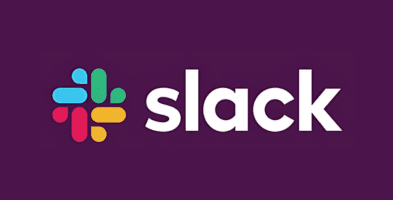Product Sense
How would you improve Instagram Stories?

How to Approach and Answer This Question in a PM Interview
This question evaluates your ability to improve an already successful feature by identifying pain points, leveraging user insights, and introducing innovative enhancements. A good response should balance user needs with business goals while ensuring feasibility.
1. Start with Context
Tip: Frame Instagram Stories as a core feature and explain its significance.
Say something like:
“Instagram Stories is a critical feature for driving user engagement and retention. With its ephemeral nature and wide reach, it fosters authentic sharing and helps users stay connected. However, in a competitive landscape where platforms like Snapchat and TikTok also excel at short-form content, Instagram Stories must continuously evolve to remain relevant and engaging.”
2. Identify Current Pain Points
Tip: Use logical assumptions and insights to highlight areas for improvement.
1. Limited Personalization:
Stories may lack personalization, leading to users skipping content that doesn’t align with their interests.
Ads or irrelevant stories can disrupt the user experience.
2. Creator Challenges:
Content creators may struggle with visibility due to the algorithm favoring certain profiles.
Limited tools for interactive storytelling can make content repetitive.
3. Viewer Fatigue:
High volumes of stories from accounts can overwhelm users, causing them to disengage.
Lack of discovery options for stories beyond their immediate following limits engagement with diverse content.
4. Monetization Opportunities:
While ads exist, there’s room for more seamless and user-friendly monetization features within Stories.
Start Earning ₹ 10 LPA in just 6 months
Get in Touch
3. Propose Solutions
Tip: Suggest actionable features or changes while keeping user and business goals in mind.
1. Enhanced Personalization
AI-Driven Story Feeds: Implement AI to curate story orders based on user preferences, interactions, and past behavior.
Story Filters: Allow users to filter stories by categories like “Friends,” “Creators,” or “Brands” for a more focused experience.
Opt-Out from Ads or Irrelevant Stories: Provide users with a feedback mechanism to skip certain ads or mute types of content they find irrelevant.
2. Empowering Creators
Advanced Editing Tools: Introduce features like AI-generated story templates, advanced transitions, and multi-user collaboration tools to enhance content quality.
Story Analytics for Creators: Offer detailed metrics on story engagement (e.g., tap-forward/backward rates, replays) to help creators optimize their content strategy.
Boosting Options: Allow creators to boost individual stories for better reach among their followers.
3. Combat Viewer Fatigue
Smart Batching: Automatically group similar stories (e.g., all “Food Stories” or “Travel Stories”) and let users choose what to watch.
Highlight Relevant Stories: Introduce a “Today’s Highlights” section showing trending or high-value stories from followed accounts.
Auto-Close Suggestions: Suggest users take a break or switch to another feature after prolonged story scrolling to prevent fatigue.
4. Improve Discoverability
Story Explore Tab: Create a new tab where users can discover trending or popular stories, similar to the Explore feed for posts.
Geotagged Stories: Highlight stories from specific locations or events, making it easier for users to engage with local content.
5. Boost Monetization
Shoppable Stories: Enhance the shopping experience by making product tags more interactive and integrating AR try-on features directly in stories.
Subscriber-Exclusive Stories: Introduce an option for creators to post stories exclusively for their paid subscribers, incentivizing content monetization.
Know why learners choose ISS
Download Brochure
4. Address Potential Challenges
Tip: Acknowledge potential risks and provide solutions.
Challenge 1: Overpersonalization
“Too much reliance on AI for curation could make the experience predictable. We could mitigate this by allowing users to toggle between AI-curated and chronological feeds.”
Challenge 2: Feature Complexity
“Introducing too many features might overwhelm users. To address this, we’d roll out features gradually and provide in-app tutorials to guide users through new tools.”
Challenge 3: Monetization Pushback
“Users might perceive increased monetization as intrusive. We’d ensure that ads and monetization tools are non-disruptive and offer clear value to users.”
5. Define Success Metrics
Tip: Conclude by explaining how you’d measure the impact of your improvements.
Say something like:
“The success of these enhancements can be measured through:
Engagement Metrics: Increased story views, taps, and interactions.
Creator Metrics: Growth in content creation and higher engagement rates for creators.
Retention Metrics: Higher daily active users (DAUs) and time spent on Stories.
Revenue Metrics: Increased revenue from shoppable tags and story ads.
User Sentiment: Improved feedback scores from surveys and app store reviews.”
Why This Approach Works
User-Centric Focus: The proposed solutions address specific pain points for users and creators.
Business Alignment: Monetization and engagement improvements directly support Instagram’s revenue and growth goals.
Feasibility: The ideas leverage Instagram’s existing capabilities while introducing innovative yet implementable changes.
This structured response demonstrates strategic thinking, user empathy, and a strong grasp of product management principles.
Share on:
You May Also Like

Product Sense
I
Product Management
How can you adapt Uber's successful ride-sharing model to cater to the unique ne...

Product Sense
I
Product Management
Slack is struggling to convert free trial users to paying customers. What strate...

Product Sense
I
Product Management
Instagram is seeing a decline in user engagement. What are some potential causes...

Product Sense
I
Product Management
How would you improve Google Search for visually impaired users?

Product Sense
I
Product Management
Should Apple create its own search engine? Why or why not?

Product Sense
I
Product Management
How can Microsoft Teams better compete with Slack in attracting small businesses...
Best secret gems 🌟
Keep the lead by staying informed about our newest programs, workshops, and community involvement events. Plus, receive updates about the industry, read interesting articles, and gain access to exclusive reports. Everything delivered directly to your inbox!
Enter your email
Subscribe
Engage
Upskill your Team
Newsletter Vault
Apply as Mentor
© 2024 All rights reserved.
